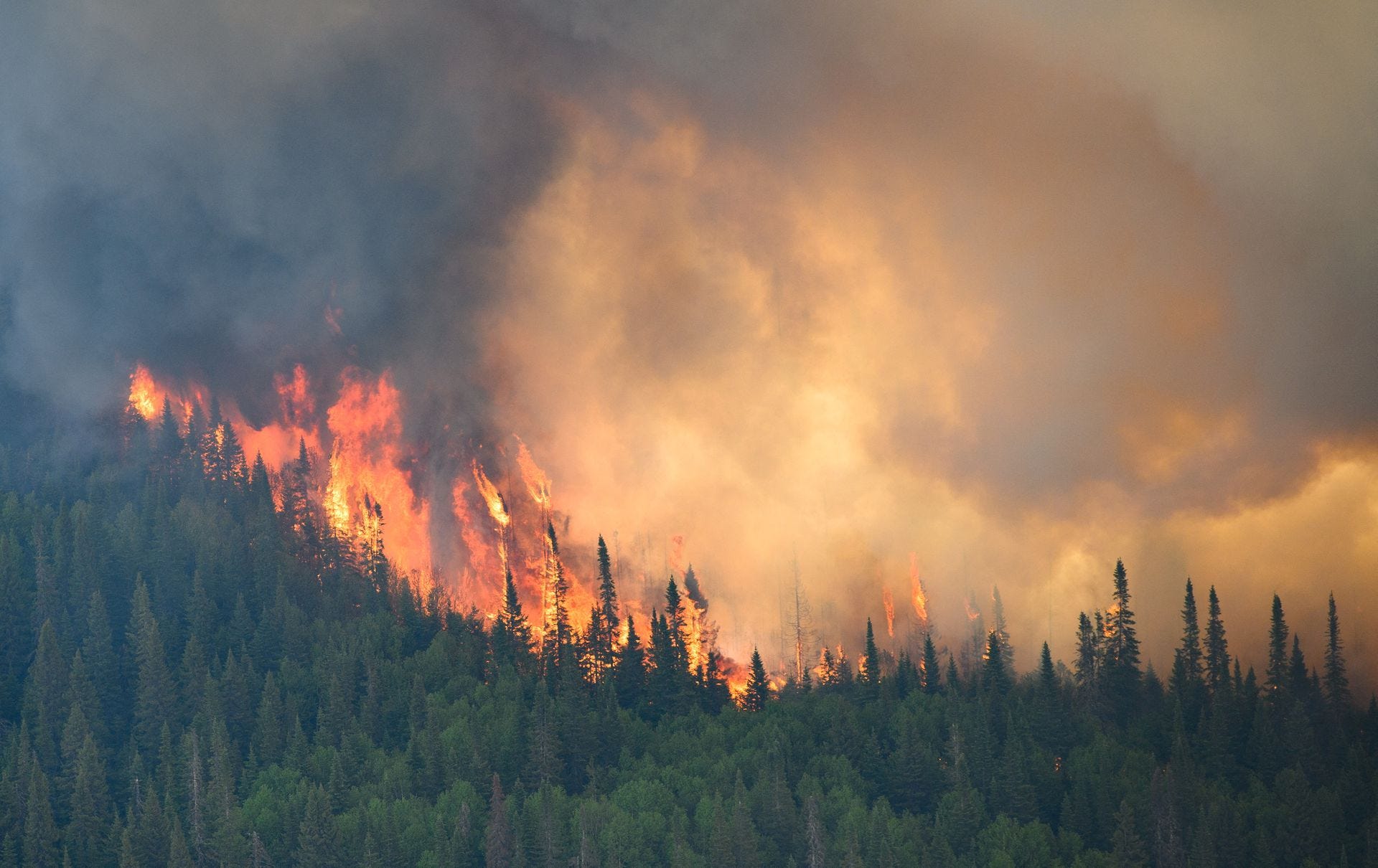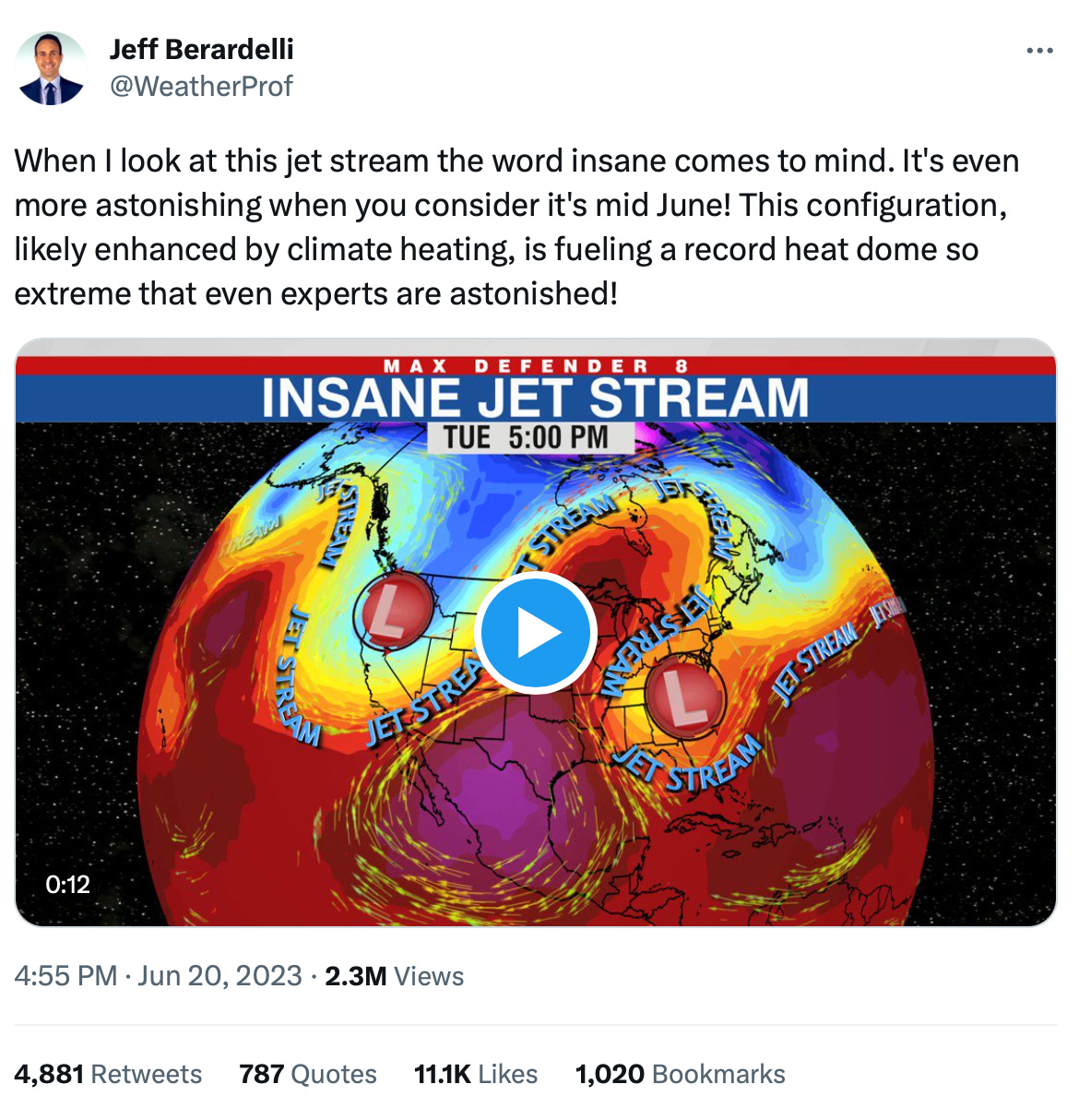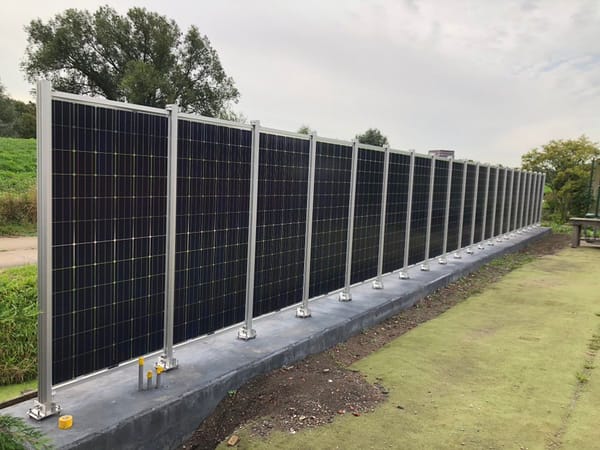PR misses an opportunity, while American smoke and heat is expected to stay
Good Afternoon!
With about 160 million Americans living in unhealthy air or deadly heat, it seems like a good time to talk about climate change. But this won’t be the only opportunity, as the Canadian fires are expected to rage on, the Texas heat dome will stay, and this year’s hurricane season is expected to be worse than in the past. I suspect we’ll have plenty more opportunities to bring up climate change in the coming months.
-Mike
Thank you for reading Heat Rising. This post is public so feel free to share it.

American BBQ: Land of Smoke and Heat
Almost 100 million Americans are living in “Unhealthy” rated air quality conditions, from Iowa to New York, and Minnesota to Kentucky. Meanwhile, another 60 million Americans are dealing with extreme heat from Texas to Florida, sometimes reaching 120-degrees Fahrenheit with the heat index. The National Oceanographic and Atmospheric Administration says weather conditions are unlikely to change in the next week, so we should get used to the smoke and heat.
Climate scientists say the weather conditions are because the jet stream, which used to run a pretty straight light from Vancouver to Boston and keep Canadian weather in Canada, is now wonky and possibly broken because the Arctic is no longer cold enough to keep the jet stream working right. The broken jet stream and a lack of cold Arctic pressure zones means the heat dome moves further north than usual and Canadian smoke moves further south than usual.
Welcome to the new normal where 30,000 square miles of Canadian forest (an area the size of South Carolina) has burned, and we should expect more. So far, more has burned in Canada this year than in the last four big fire years combined. The central U.S. is experiencing a drought, endangering the corn crop, and this year’s extreme heat is expected to cost $1 billion in extra health care costs.

Puerto Rico passes up a chance to go solar, doubles down on fossil
An island with sunny skies would seem to be the perfect place to build a distributed, solar-powered electricity grid, but this week the Army Corps of Engineers and the Puerto Rico Electric Power Authority (PREPA) decided to double down on fossil-fuel plants to serve the island’s 3.2 million residents.
For decades the island has foregone grid maintenance, and then a pair of hurricanes and an earthquake turned the grid into a complete shambles, constantly teetering on rolling blackouts. To rebuild, Congress awarded the Federal Emergency Management Authority (FEMA) over $11 billion two years ago, which has been held in reserve as island residents argued over how to expend the money. While today, 97% of power is generated with fossil fuels, in 2019 Congress set lofty goals when it required PREPA to generate 40% of power with renewables by 2025, and 100% by 2050.
In April a group of activists sued FEMA to force the agency to install distributed solar on homes across the island. But FEMA and PREPA have countered that it would cost more than $25 billion to get adequate solar to every customer, considerably more than the amount already allocated.
PREPA is responsible for power generation, while electricity transmission and distribution is managed under a 15-year contract with LUMA Energy, which still suffers from regular blackouts. Probably because of the grid’s poor history and LUMA missteps, few locals have confidence in any aspect of their power delivery. In 2021, the Puerto Rican legislature sought the arrest of LUMA’s CEO for contempt, and even Bad Bunny, the PR music superstar, made a video cursing the company.
Ignoring all that, last week the Army Corps issued a notice to fix the existing fossil fuel power plants, spending up $5 billion of FEMA’s money on the project, essentially killing PREPA’s 40% renewable goal, and likely making activists lawsuits to focus FEMA funds on building a renewables-powered grid.
It’s not a done deal yet, but it seems like things are essentially staying the same in Puerto Rico.
Other Things Happened
- Three percent of total emissions come from maritime sources, a recent study said that could be halved by 2030 without impacting trade.
- The energy sector added 300,000 jobs in 2022, most of which were in green energy.
- Car maker Stellantis is launching an EV charger unit to compete with Tesla.
You made it to the end! Have you seen the Grimace shake meme? Here’s a pretty great montage.





